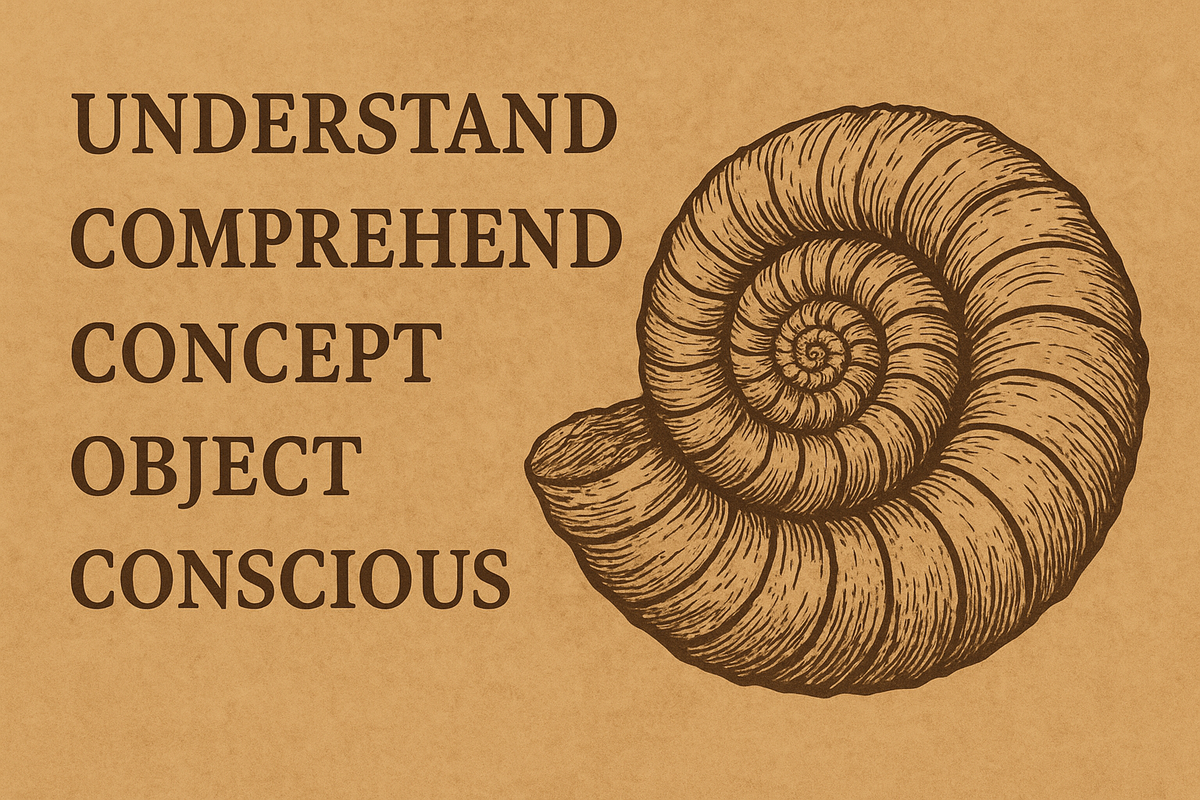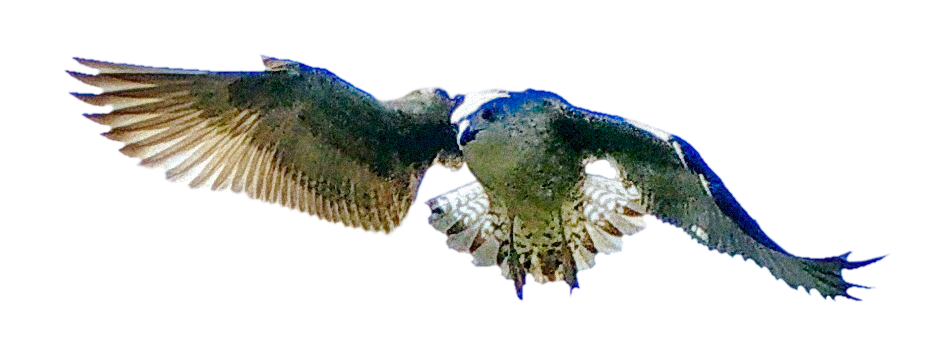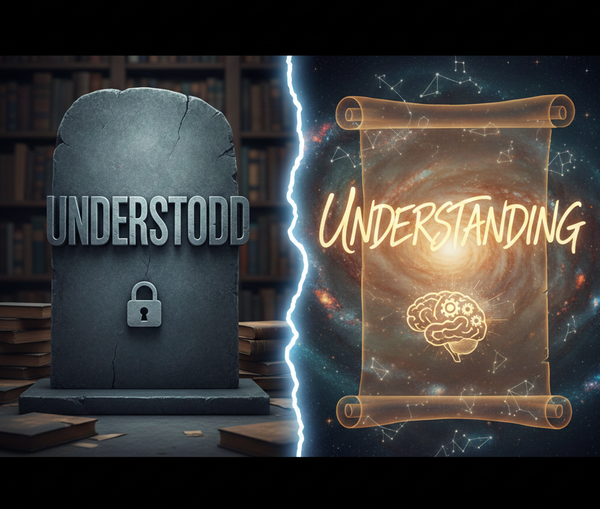Your Words Know Something Your Mind Has Forgotten

Something extraordinary hides in plain sight beneath our modern academic landscape. Physics, mathematics, biology, psychology, philosophy—these impressive disciplines that organize our understanding of the world—all rest upon a foundation they can no longer see. Like a great tree whose roots have been forgotten, our specialized fields of knowledge have grown so tall and complex that we've lost sight of the primordial capacity that nourishes them all.
This capacity existed long before the first university was built, before the first textbook was written, before knowledge was carved into separate territories with their own languages and methods. It is the upstream source of all knowing—the fundamental ability to create and manipulate knowledge that makes every academic discipline possible.
But here's the paradox: the very success of our disciplines has buried this source. Each new field, each specialization, each technical vocabulary has added another layer of abstraction, moving us further from the recognition of what makes all knowledge possible.
How do we find our way back? How do we glimpse what existed before the edifice of academic thinking was constructed?
Words as Time Machines
Etymology offers us a remarkable gift—the ability to travel backward through layers of meaning to recover something more fundamental. Like archaeologists carefully brushing away sediment to reveal ancient foundations, we can trace our most essential knowledge-related words back to their origins.
We just need to brush away the accumulated meanings that have been added over time by successive academic disciplines. What we discover is startling: these words didn't emerge from abstract theorizing but from direct, lived experiences of knowledge creation itself.
The Language of Knowing and Understanding
Understand comes from Old English understandan, meaning "to stand among, stand in the midst of." The original feeling was not analytical detachment but participatory presence—the embodied sense of positioning oneself within a context of meaning rather than observing it from outside.
Comprehend derives from Latin com-prehendere, "to seize, grasp, take together." Originally a physical action of gathering something into one's hands, it captured the feeling of taking full possession of a sequence of understandings. Comprehend recalls the process while understand is immediate.
Intelligence traces back to Latin inter-legere, "to choose between, to pick out, discern." Intelligence was not the accumulation of information but the feeling of careful discrimination—the lived experience of reading the fine grain of situations and separating what matters from what doesn't.
Conscious comes from Latin con-scire, "to know with, to be privy to knowledge." Early usage implied the feeling of shared awareness, mutual knowing—often the intimate knowledge shared between confidants.
Wisdom derives from the Proto-Indo-European root weyd-, meaning "to see." Wisdom was originally the feeling of "deep seeing"—not abstract doctrine but the lived experience of vision that penetrates surface appearances to perceive hidden connections.
The Language of Conceptual Operations
Concept comes from Latin cum capere, "to take together, to grasp." The image is of cupping one's hands to gather scattered elements into a coherent whole—a gestural feeling of unification.
Explication derives from Latin ex-plicare, "to unfold, to unroll." The original feeling evoked unrolling a scroll or unfolding something compact to make its contents visible and accessible.
Analysis traces back to Greek ana-lyein, "to loosen, to dissolve"—literally the feeling of untying knots or dissolving bindings to reveal component parts.
Synthesis comes from Greek syn-tithenai, "to place together, to combine"—the constructive feeling of laying different elements together to create something new.
Theory derives from Greek theoria, "a viewing, contemplation." In ancient Greek, a theoros was a spectator at an event or religious festivals; theory implied the feeling of observing a show rather than speculative reasoning.
The Language of Being and Reality
Individual comes from Latin in-dividuum, "undivided, not divisible"—the feeling of recognizing something that maintains its integrity, that cannot be split or separated.
Object derives from Latin ob-iacere, "to throw before, to place in the way." The original feeling was not of encountering dead matter or external things, but of something being placed before awareness—something that presents itself as available for attention and interaction.
Nature traces back to Latin natura, from nasci, "to be born." Nature was not an external system of objects but the feeling of witnessing emergence itself—what comes forth into life and growth.
Existence comes from Latin ex-sistere, "to stand forth, to emerge." The original feeling was of something stepping out into presence, something showing itself.
Essence derives from Latin esse, "to be"—simply the feeling of the act or condition of being, what makes something present.
Transcendence comes from Latin trans-scandere, "to climb beyond, to go across." The original feeling was not of escape to another realm, but of the experience of moving beyond current limitations—the felt sense of moving beyond consciousness.
The Feelings of Behaviors Behind the Words
Each word is a fossil of direct experience, preserved in language like amber preserving ancient life. When we crack open these linguistic fossils, they reveal a world where knowledge wasn't abstract but embodied, where understanding wasn't theoretical but felt, where consciousness wasn't a problem to be solved but a living reality to be experienced.
As we trace more words back to their experiential roots, a remarkable pattern emerges. Despite their apparent diversity, these concepts all point toward the same underlying phenomenon—different aspects of a unified capacity for creating and manipulating knowledge. They describe not abstract categories but lived behaviors that we can still feel when we pay attention:
- The positioning behavior appears in words like "understand" (standing among) and "conscious" (knowing with)—the capacity to place ourselves in relation to what we're coming to know.
- The gathering behavior shows up in "comprehend" (grasping together), "concept" (taking together), and "synthesis" (placing together)—the ability to collect scattered elements into coherent wholes.
- The discriminating behavior lives in "intelligence" (choosing between) and "analysis" (loosening, dissolving)—the capacity to make distinctions and separate what matters from what doesn't.
- The revealing behavior breathes through "explication" (unfolding), "existence" (standing forth), and "essence" (being)—the ability to make hidden contents visible and allow what is present to show itself.
These aren't just linguistic curiosities. They're descriptions of fundamental behaviors that we engage in every time we come to know something. The original word-coiners weren't constructing theories—they were recognizing and naming the living processes of knowledge creation as they experienced them directly.
Recovering What Was Never Lost
What becomes clear through this etymological journey is that our sophisticated academic disciplines have helped us forget something essential: all human knowledge emerges from a unified source that existed long before any particular field of study. This primordial capacity isn't a theory or hypothesis—it's the living reality that makes theories and hypotheses possible.
Every time we understand something, we're engaging the positioning behavior that allows us to stand among what we seek to know. Every time we form a concept, we're enacting the gathering behavior that brings scattered elements into unity. Every time we make a distinction, we're exercising the discriminating capacity that allows intelligence to operate. Every time something becomes clear to us, we're participating in the revealing behavior that lets hidden patterns emerge into visibility.
The capacity was never actually lost—we've simply learned not to see it. Like people living in a house who've forgotten about the foundation because they're so absorbed in rearranging the furniture, we've become fascinated with the products of knowledge creation while losing sight of the creative capacity itself.
This recognition opens a door. If we can see that there was indeed a time before academic specialization obscured the primordial capacity—if we can glimpse it through the preserved experiences crystallized in our language—then perhaps we can learn to investigate this capacity directly. Not through the elaborate conceptual systems that have grown up around it, but through the simple recognition of what we're actually doing when we come to know anything at all.




